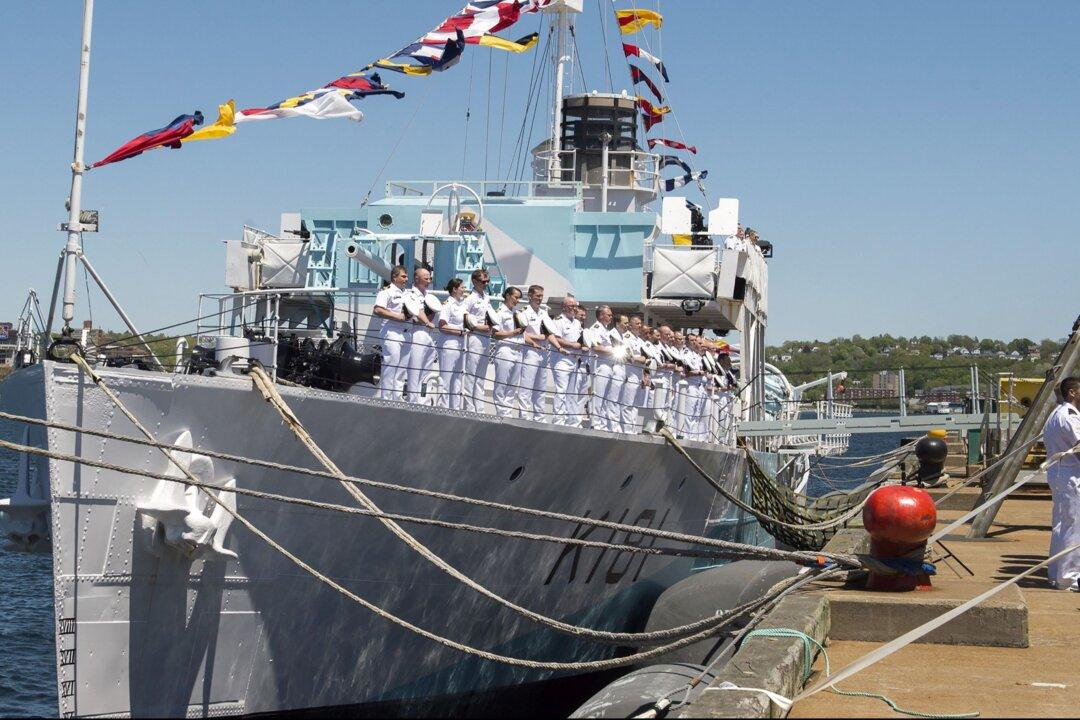The Department of National Defence says the Royal Canadian Navy intends to replace its official musical march over concerns the song’s lyrics do not align with the current values of the armed forces.
The military has been working on replacing the song, inherited from the British Royal Navy, for about four years, the Globe and Mail first reported. According to internal briefing notes, options have been to continue playing the song without the lyrics, to rewrite the lyrics to make them “more inclusive,” or to compose a new march.





